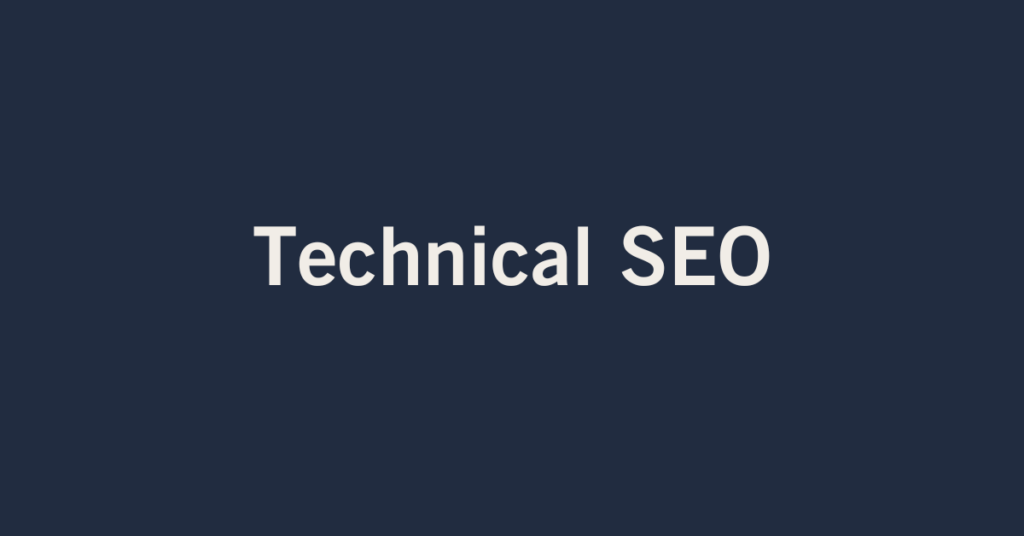
The Role of a Technical SEO Consultant
Technical SEO is the often-overlooked cornerstone of a successful organic search strategy. It’s the foundation upon which all other SEO efforts are built.
A website can boast exceptional content and a powerful domain authority, but without a solid technical infrastructure, its potential for organic visibility will be severely limited.
The growing popularity of Large Language Models (LLMs) as a way for people to access information makes it more important than ever to make website content performant and accessible for all types of crawlers.
What is Technical SEO?
At its core, technical SEO is about optimising your website to make it easier for search engines to understand and index your content. It also involves improving specific aspects of the user experience to enhance the browsing behaviour signals that search engines use to determine website quality (Chrome is the most popular browse by far, so Google has huge amounts of data about how users interact with websites throughout their search journey).
Technical SEO challenges vary widely between different types of websites. An ecommerce platform will face different issues to a content-focused blog. Even within the same industry, websites built on different CMS platforms or themes can have unique technical SEO hurdles.
Some common types of technical SEO categories issues include:
- Discovery: Ensuring search engines can efficiently find and access all your website’s pages.
- Crawlability: Making sure important content is accessible to search engines, even when delivered through JavaScript.
- Website performance: Optimising your site for fast loading speeds to improve user experience and search engine rankings.
- Duplicate content: Preventing search engines from seeing identical content on multiple URLs, which can harm rankings.
- Incorrect or lack of Schema markup: The correct implementation of structured data to help search engines understand your content better and display rich snippets.
This is just a snapshot of the potential technical SEO challenges a website can face. Over my career as a technical SEO consultant, I’ve encountered a vast array of complex issues, each requiring unique solutions.
Types of Technical SEO Consultancy Clients
Web Agencies
Web agencies are great at crafting visually stunning websites but often overlook the critical technical SEO foundations. A typical engagement with a technical SEO consultant will involve advice and guidance throughout the ideation, build and launch process to ensure technical SEO best practice from the start.
Small Businesses
Website platforms like WordPress and Shopify make it relatively easy for small business owners to build their own site, but it’s easy to miss some SEO opportunities. A lightweight technical audit aimed at uncovering critical issues that might be hindering performance and/or identify high-impact opportunities for improvement would usually be the initial starting point for a small business who wants to improve their SEO performance.
Medium-Sized Organisations
Medium sized organisations or tech startups may have larger or more complex websites which can present a wider range of technical issues that could be hindering performance. On the positive side, they generally have greater engineering resources to solve them. Clients of this type typically have more ambitious growth goals which, combined the need for greater ongoing guidance with technical SEO fixes, make an retainer a more suitable type of engagement.
Enterprise-Level Businesses
Enterprise-level organisations often grapple with complex technical SEO challenges due to custom systems and multilingual websites. Engagements can range from technical audits or consultancy to support one-off projects to ongoing retainers, often involving other services such as programmatic SEO consultancy, international SEO consultancy or organic growth strategy.
What to Look for in a Technical SEO consultant
- Deep understanding of search engine algorithms: SEO is a dynamic field. Your consultant should have a strong grasp of Google’s algorithms and stay updated on industry trends to ensure your website remains competitive.
- Technical expertise: A solid foundation in web technologies is crucial. Your consultant should understand domains, servers, hosting, coding languages (HTML, CSS, JavaScript), and internet protocols.
- Platform proficiency: Experience with your website’s platform (Shopify, WordPress, Webflow, etc.) is beneficial. Common issues often arise on specific platforms.
- Effective communication: Technical SEO can involve complex concepts. A good consultant can explain these clearly to both technical and non-technical teams, fostering collaboration.
- Problem-solving and prioritisation: Technical SEO audits often uncover numerous issues. Your consultant should be able to prioritise critical fixes and provide clear recommendations.
- Experience with large-scale websites: If you have a substantial website, seek a consultant with experience managing complex technical SEO projects.
- Multilingual website expertise: If your website operates in multiple languages, look for a consultant with experience in international SEO and technical challenges associated with multilingual sites.
Looking for a Technical SEO consultant?
I have extensive experience in helping clients achieve their SEO growth goals through technical SEO optimisation. Get in touch today if you’d like to organise a call.